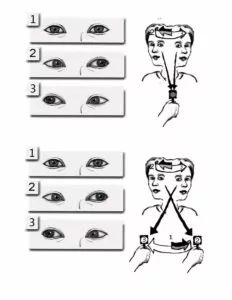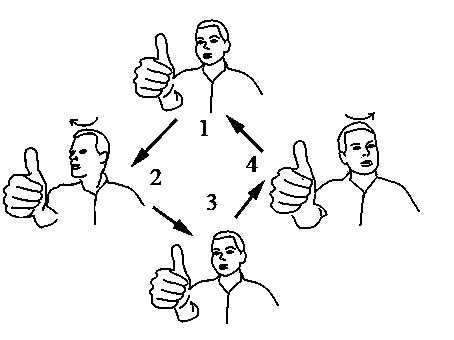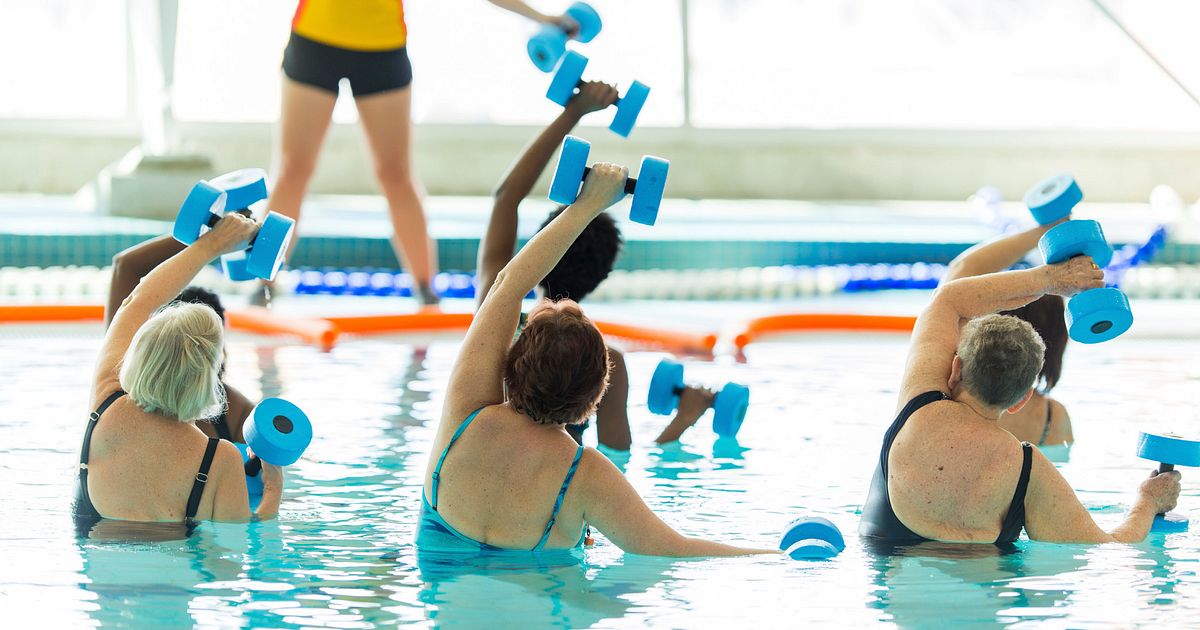vestibular rehab exercises pdf nhs
Lie down on your right side. The Brandt-Daroff exercises should be performed for two or three weeks and a suggested schedule is as follows Time exercise duration.
Brandt-Daroff exercises These exercises are a method of treating Benign Paroxysmal Positional Vertigo BPPV.

. These exercises are designed to allow your vestibular system to compensate in a. Vestibular rehabilitation VR is an exercise-based programme that is designed to encourage the central nervous system to compensate for problems in the inner ear. Exercises to improve standing balance.
L All exercises should be performed slowly to begin with and gradually progress to faster movements. Stop this exercise if you develop significant neck ache. Do sessions per day.
Your vestibular rehabilitation exercises are designed to make you experience mild. Vestibular Rehabilitation Exercises Level 1. Keeping the head still move eyes up and down 2.
A bend backwards and forwards b turn from side to side B Sitting 1 and 2 - as above. Exercises but you should persevere with them. VR exercises involve head and eye movements that are.
A common neuro-otological approach for managing such symptoms is to prescribe medication that suppresses vestibular function. Vestibular compensation Vestibular compensation is a process that allows the brain to regain balance control and minimise dizziness symptoms when there is damage to or an imbalance between the right and left vestibular organs balance organs in the inner ear. Turn your head 45 degrees to the left or as far as is comfortable.
Throw a ball from hand to hand above eye level. Vestibular rehabilitation therapy VRT is an exercise-based program for reducing the symptoms of disequilibrium and dizziness associated with vestibular pathology disease or disorder. Sit up and turn your head back to a central position facing forwards.
Vestibular rehabilitation exercises A fact sheet for patients and carers Vestibular compensation Vestibular compensation is a process that allows the brain to regain balance control and minimise dizziness symptoms when there is damage to or an imbalance between the right and left vestibular organs balance organs in the inner ear. 2 Repeat this with your eyes closed. General Information for Eye Exercises Target must remain in focus not blurry and appear stationary while head is in motion.
Vestibular Rehabilitation is an exercise-based programme to encourage the nervous system to compensate for problems in the inner ear. Extra Vestibular Rehabilitation Exercises Procedure Make sure you are seated safely before starting the exercises. Level 1 Eye movements head kept still a Look up then down.
It helps to retrain the brains ability to adjust the balance problem and is known as compensation and adaption. Following thorough examination your Audiologist will work with you on a management plan that may include exercises that you can do at home. At first slow then quick.
Please do all six movements 2-3 times each day. You may find it helpful to complete your exercises at specific times each day. As they are designed to challenge your balance system you may feel some.
Remain in this position for 30 seconds or until you no longer feel dizzy. Cawthorne-Cooksey Vestibular Exercises Section A. Normally the brain is able to put together information from the eyes joints and the balance organ in the ear vestibular apparatus to make it easy to move around without dizziness.
If you use glasses wear them while performing exercises. Eye and head movement exercises. Vestibular rehabilitation often involves.
Sitting first then when more confident standing. If the balance organ is not working properly you can feel dizzy or unsteady. Repeat 10-20 times Do 2-3 times daily 4.
To relieve this the brain must be helped to put this information together in a new way. It is important to complete your exercises this often every day. We recommend that you complete your exercises three times a day if possible.
When there is an injury or abnormality in any portion of this system the brain must be retrained or taught to interpret correctly the information it receives. Do both directions 2-3 times daily. Be careful when you start to move after you have completed the exercises.
Slowlyquickly move head rightleft with eyes openclosed. For best results focus the eyes on an object or target in each direction you turn your head including when facing forwards. The brain interprets information gained from the vestibular or balance system.
Turn your head 45 degrees to the left or as far as is comfortable. They succeed in 95 of cases but more arduous than the Epley manoeuvre. Within the vestibular or balance system.
Quickly lie down on your right-hand side. Speed of eye movement should be increased as long as the target stays in focus. L Exercises should be performed 3 times a day.
At first slow then quick a up and down b from side to side c focus on finger moving from 3ft to 1ft away from face 2 Head movements. Vestibular exercises merely stimulate the vestibular apparatus. Vestibular Rehabilitation Exercises Level 1.
To relieve this the brain must be helped to put this information together in a new way. Change from a sitting to a standing position with eyes open then closed please note this is not advised for the elderly with postural hypertension C. HEAD CIRCLES Sitting in a comfortable position begin moving your head in a circular motion with your eyes open.
To enable this to work fully you will need to be dedicated to doing exercises regularly through. Eye head and shoulder movements as 1 and 2. Vestibular exercises merely stimulate the vestibular apparatus.
Focus on your index finger as you bring it from arms length away up to your nose then out again. It explains what BPPV is what the. Vestibular rehabilitation exercises A fact sheet for patients and carers Vestibular compensation Vestibular compensation is a process that allows the brain to regain balance control and minimise dizziness symptoms when there is damage to or an imbalance between the right and left.
Keeping head still move eyes left to right 3. Exercises l Make sure that you are in a safe environment before you start any of the exercises to reduce the risk of injury. Head circles 1Sitting in a comfortable position begin moving your head in a circular motion with your eyes open.
Vestibular Rehabilitation often involves exercises to help the. Repeat times per session. The management plan may include.
Following a thorough examination a specialist Physiotherapist will develop a personalised home exercise programme for you. Vestibular rehabilitation exercises This is a specific form of physiotherapy which may be suggested if your movements are very affected. Later with eyes closed.
Exercises A In bed 1 Eye movements. Repeat 15-20 times Repeat 15-20 times in the opposite direction. Vestibular rehab exercises pdf nhs Sunday May 15 2022.
Position tilt head down 30º. Let symptoms subside plus seconds with each repetition. How difficult should my exercises feel.
Eyes joints and the balance organ in the ear Vestibular Apparatus to make it easy to move around without dizziness. Throw a ball from hand to hand under the knee. Vestibular Rehabilitation Exercises Level 2.
If the balance organ is not working properly you can feel dizzy or unsteady. What is vestibular rehabilitation.

Wrist Exercises Mobilityexercises Wrist Exercises Hand Therapy Exercises Hand Therapy

Brandt Daroff Exercises Sandwell West Birmingham Hospitals Exercise Birmingham Hospital

Vestibular Therapy 7 Reasons It Doesn T Work Dr Kim Bell Dpt

Vertigo Treatment For Bppv With Brandt Daroff Exercises Ask Doctor Jo Youtube

Upper Extremity Strengthening Cards And Printables For Kids Pink Oatmeal Shop Physical Activities For Kids Pediatric Physical Therapy Activities Occupational Therapy Kids

Rehabilitation Exercises Exercise Images Rehabilitation

Vestibular Rehabilitation Therapy Vrt Veda

Home Vestibular Exercises Youtube
/cervical-radiculopathy-physical-therapy-5199243_final-01-a732057be7c14ac0a3be1a7dc75325f0.jpg)
Cervical Radiculopathy Physical Therapy What To Expect

Tibial Plateau Fracture Treatment Exercises Faqs Case

Vor Exercise Gaze Stabilisation Exercises Ear Balance And Eustachian Tube

Compensation Seattle Dizzy Group

Upper Extremity Strengthening Cards And Printables For Kids Pink Oatmeal Shop Pediatric Physical Therapy Activities Occupational Therapy Kids Occupational Therapy Activities

Wrist Exercises Mobilityexercises Wrist Exercises Hand Therapy Exercises Hand Therapy

Nhs Ayrshire Arran Low Back Pain Lumbar Spinal Stenosis Exercises Msk



